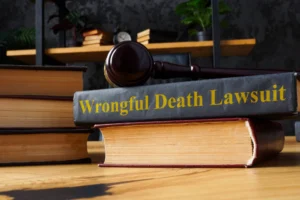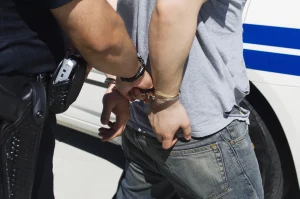You don’t have to be caught holding a single gram of drugs to be charged with a federal drug conspiracy. In fact, many people are shocked to learn that simply talking about or agreeing to participate in a drug trafficking operation — even if you never touch the drugs yourself — can land you in federal court facing serious charges.
Federal prosecutors have broad authority when it comes to conspiracy laws, and these cases often rely on testimonies, surveillance, or circumstantial evidence rather than direct drug possession. This means that friends, associates, or even bystanders with no knowledge of the operation can find themselves roped into serious legal battles simply for being in the wrong place, knowing the wrong people, or saying the wrong thing.
If you’re facing drug conspiracy charges, even if you never possessed or transported drugs, you still need a strong legal defense. Attorney Javier Guzman of Guzman Law Firm has a proven track record of getting federal drug conspiracy cases dismissed. Don’t wait. Call today at (956) 516-7198 for a confidential consultation.
What defines a federal drug conspiracy charge?
A federal drug conspiracy is defined under 21 U.S. Code § 846, which makes it a crime to conspire to violate any part of the federal Controlled Substances Act. The key term here is “conspire.” That means federal prosecutors don’t have to prove that you actually sold, transported, or even saw the drugs involved. They just have to show that:
- Two or more people agreed to commit a drug-related crime; and
- You knowingly and voluntarily joined in that agreement.
The law is intentionally broad. You can be charged for simply helping to plan a drug transaction, making introductions, or offering resources, even if you never physically handled the drugs.
What is the burden of proof for conspiracy?
For the government to convict someone of a federal drug conspiracy charge, they must prove beyond a reasonable doubt that there was a criminal agreement and that you intentionally participated. But this doesn’t require direct evidence of drug possession.
In many cases, prosecutors rely on wiretaps, text messages, surveillance footage, or the testimony of cooperating witnesses to argue that someone was part of the conspiracy. It’s common for prosecutors to charge everyone involved in a drug trafficking network, no matter how small their role, with the same conspiracy.
That’s why these cases can feel incredibly unfair. You may feel like you were just a bystander or someone on the fringes of a conversation, but to federal authorities, that’s often enough to charge you.
What is the minimum sentence for conspiracy?
Drug conspiracy charges often carry the same penalties as the underlying drug crime itself. That means the sentence depends heavily on:
- The type and quantity of the controlled substance involved,
- The defendant’s prior criminal record, and
- Whether the government filed any sentencing enhancements (such as a firearm enhancement or a leadership role in the conspiracy).
For example, under 21 U.S. Code § 841(b):
- Conspiring to distribute 500 grams of cocaine can trigger a mandatory minimum sentence of 5 years, with a maximum of 40 years.
- Conspiring to distribute 1 kilogram of heroin or 5 kilograms of cocaine can result in a minimum of 10 years, with a maximum of life in prison.
What makes conspiracy charges especially dangerous is that you can be held responsible for the entire quantity of drugs involved in the conspiracy, even if you only played a small part or were unaware of the full scope.
Additionally, federal sentencing guidelines often recommend severe prison terms, even for first-time offenders. The stakes are high, and without the right defense, you could face decades behind bars.
How hard is it to beat a conspiracy charge?
Conspiracy charges can be tough to beat, but not impossible. Federal prosecutors often stack conspiracy charges against multiple defendants in hopes that some will accept plea deals and testify against others. This strategy allows them to build cases with minimal physical evidence by relying on statements, informants, or wiretap snippets.
Unfortunately, innocent people often get caught in the crossfire. You might have had nothing to do with the core drug operation, but still end up facing charges because someone dropped your name or your phone number appeared in a contact list.
To successfully defend against conspiracy charges, you need to challenge:
- The existence of an agreement: Did you actually agree to help? Or were you unaware of what was going on?
- Your knowledge and intent: Did you know the plan involved drugs? Did you knowingly and willingly participate?
- The evidence against you: Is the government relying on unreliable witnesses or weak circumstantial evidence?
Every case is different, and the defense strategy must be tailored to the facts and evidence.
How a federal drug crimes lawyer can help
A federal drug conspiracy charge is not something you can fight alone. The complexity of federal law, the aggressiveness of prosecutors, and the harsh sentencing guidelines make these cases incredibly serious. But with the right legal strategy, you can beat the charges, or at the very least, get them significantly reduced.
At Guzman Law Firm, attorney Javier Guzman has successfully defended clients against serious federal drug charges, including conspiracy to distribute. He knows how to:
- Analyze the government’s case for weaknesses
- Challenge unreliable informant testimony or illegal wiretaps
- Fight for dismissals or reductions
- Negotiate favorable plea deals when appropriate
Javier has a proven track record of getting federal drug conspiracy cases dismissed, especially when prosecutors overreach or rely on flimsy evidence. If you’re facing conspiracy charges without ever possessing drugs, you still have rights; Guzman Law Firm will fight to protect them.
Holding the bag for a drug conspiracy charge? Call Guzman Law Firm.
Just because you weren’t caught with drugs doesn’t mean you’re safe from prosecution. Federal law allows prosecutors to go after anyone they believe played a role in a drug trafficking operation — no matter how minor. If you’re being accused of conspiracy, you could be facing years or decades in federal prison, even if you never touched the drugs.
That’s why it’s critical to speak to a seasoned federal criminal defense attorney as soon as possible.
Attorney Javier Guzman and the team at Guzman Law Firm understand the ins and outs of federal drug conspiracy law. They know how to pick apart government allegations, protect your constitutional rights, and fight back hard in court. Whether it’s a dismissal, a reduced charge, or a not-guilty verdict, Guzman Law Firm will do everything possible to protect your freedom.
Don’t let a conspiracy charge ruin your life. Call Guzman Law Firm today at (956) 516-7198 for a confidential consultation.
More Helpful Articles by Guzman Law Firm:
- What to Know about Federal Conspiracy Charges
- What Is Probable Cause in a Search for Drugs or Firearms?
- Who Is Liable in a Multi-Vehicle Accident in Texas?
- How Texas Law Handles Uninsured Drivers in Car Accidents
- What Are the Consequences of Missing a Court Date in Texas?





